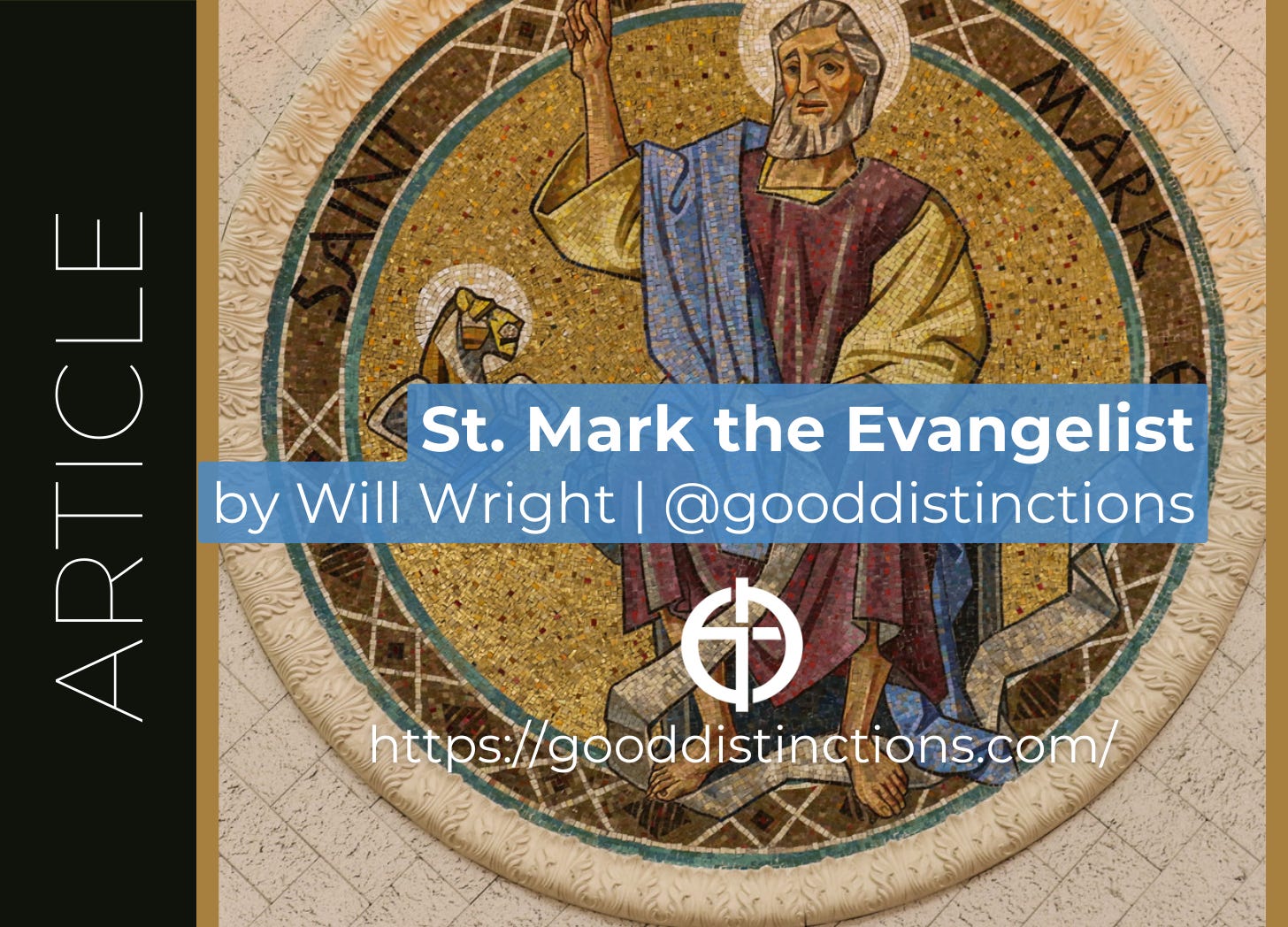St. Mark the Evangelist
[Feast of St. Mark the Evangelist - April 25]
Modernist Biblical scholars like to cast doubt on the authenticity of the Gospels and the New Testament, as a whole. They would prefer to discredit the historical reality of the Church and say that the Gospels were written by anonymous figures. The more reasonable conclusion, however, is to conclude (based on the evidence) that the Gospel of Mark for example was written by St. Mark. The four Gospel writers: Matthew, Mark, Luke, and John are often depicted as an Angel, Lion, Ox, and Eagle.
St. Mark, in particular, is pictured as a Lion. In His Gospel, the strength, authority, majesty, and power of the Lion of Judah - Jesus Christ - represented well. The Gospel of Mark also begins with John the Baptist crying out in the wilderness, similar to a lion roaring. Put simply, in the Gospel of Mark, Jesus is shown as a triumphant and conquering Messiah and the text itself is simple and to the point. There is also a link between the lion and the Resurrection of Jesus. Lions were believed to sleep with their eyes open, which the ancients may have compared to Christ in the tomb.
It is possible that St. Mark was the cousin of Barnabas who traveled with Paul. And St. Hippolytus holds that he was one of the seventy disciples that Jesus sent out in the Gospel of Luke to the land of Judea. On the way to Rome, St. Peter encountered Mark and brought him into his company as an interpreter, scribe, and travel companion. While in Rome, St. Mark wrote his Gospel account of Jesus’ life around 42 - 43 A.D. In many ways, this Gospel could be said to be St. Peter’s Gospel because he is certainly the primary source of it. Nonetheless, it bears the name of St. Mark - the name of the true author of the Gospel - which further solidifies that it was not anonymously written.
After the Council of Jerusalem, accounted for in the 15th Chapter of the Acts of the Apostles, Mark traveled to Cyprus but then found his way to Alexandria. In Alexandria, he founded the Church there, which would become the Coptic Catholic Church. Aspects of the Coptic liturgy today can be traced back all the way to St. Mark!
St. Mark the Evangelist, pray for us!


